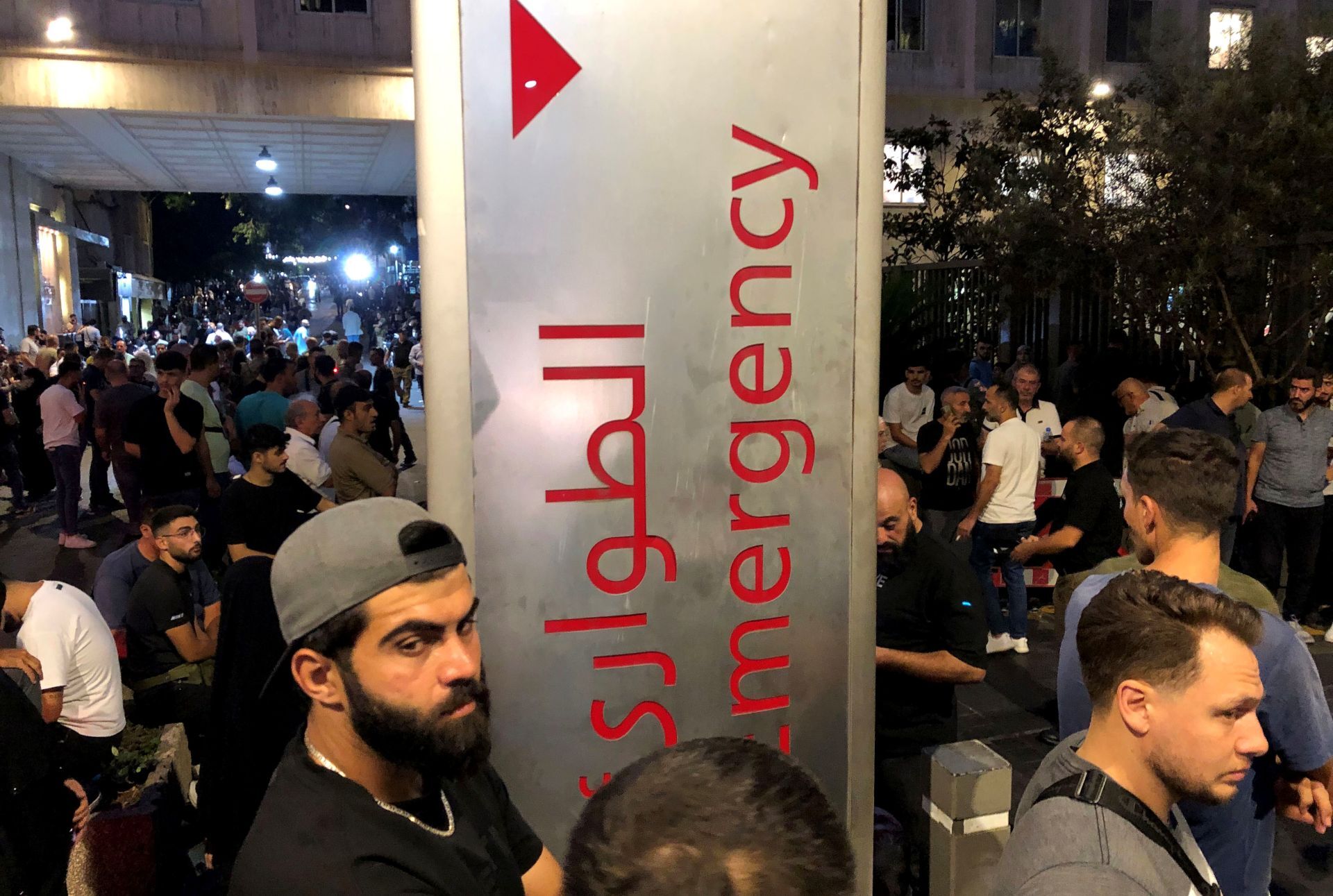On Sept. 17, just before 3:30 p.m., the small waiting room of Dr. Nour’s three-room pediatrics clinic in southern Beirut was packed. A mother was waiting to get preschool checkups for her three children. Two elderly patients were booked in for cataract treatments at the ophthalmologist office next door. Sitting next to them was a young couple whom Nour, whose name has been changed for security reasons, had not met before. The father bounced a 10-day-old baby on his lap. Clipped to his belt was a Gold Apollo Rugged Pager.
Nour brought the young couple into her examination room. She pulled out a blank file for the newborn and wrote his name: Aiman. She placed him on the scales: a little over 7 pounds. She lay Aiman on his back on an examination table and began to record his weight. As she did so, the man’s pager beeped twice.
“Excuse me,” he said, and reached down to silence it.
As he did so, about an ounce of explosives concealed within the pager detonated, sending shards of metal and fragments of its thick plastic casing out in all directions. The shrapnel tore deep wounds in the man’s abdomen, lodged in the ceiling of the clinic and lacerated the face of the baby as he lay on his back. Nour was thrown backward as the room filled with dust. She could not see through the smoke, but she could hear the woman’s voice shouting: “Aiman!”



2-4 collateral damage is pretty good compared to bombs and air strikes.